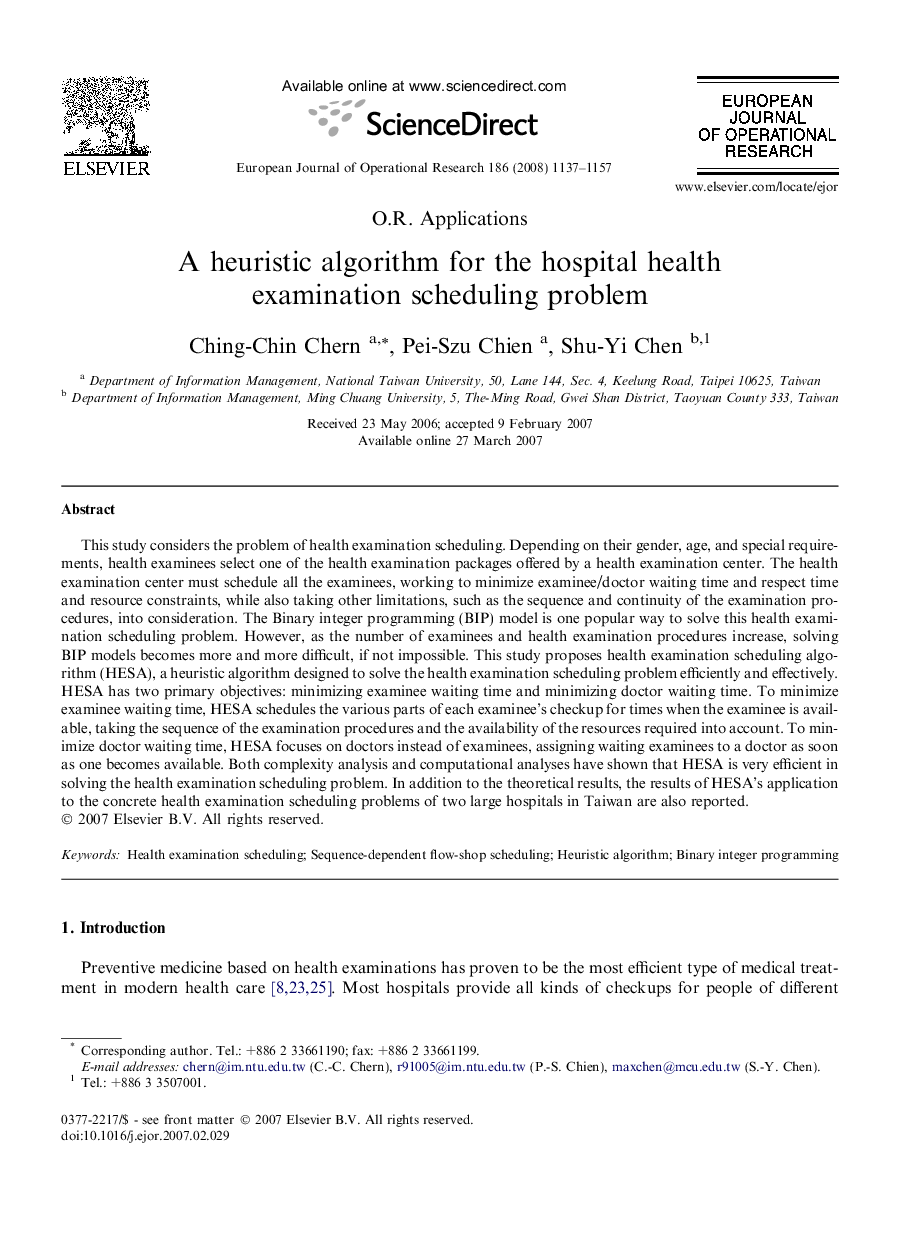| Article ID | Journal | Published Year | Pages | File Type |
|---|---|---|---|---|
| 481602 | European Journal of Operational Research | 2008 | 21 Pages |
This study considers the problem of health examination scheduling. Depending on their gender, age, and special requirements, health examinees select one of the health examination packages offered by a health examination center. The health examination center must schedule all the examinees, working to minimize examinee/doctor waiting time and respect time and resource constraints, while also taking other limitations, such as the sequence and continuity of the examination procedures, into consideration. The Binary integer programming (BIP) model is one popular way to solve this health examination scheduling problem. However, as the number of examinees and health examination procedures increase, solving BIP models becomes more and more difficult, if not impossible. This study proposes health examination scheduling algorithm (HESA), a heuristic algorithm designed to solve the health examination scheduling problem efficiently and effectively. HESA has two primary objectives: minimizing examinee waiting time and minimizing doctor waiting time. To minimize examinee waiting time, HESA schedules the various parts of each examinee’s checkup for times when the examinee is available, taking the sequence of the examination procedures and the availability of the resources required into account. To minimize doctor waiting time, HESA focuses on doctors instead of examinees, assigning waiting examinees to a doctor as soon as one becomes available. Both complexity analysis and computational analyses have shown that HESA is very efficient in solving the health examination scheduling problem. In addition to the theoretical results, the results of HESA’s application to the concrete health examination scheduling problems of two large hospitals in Taiwan are also reported.
